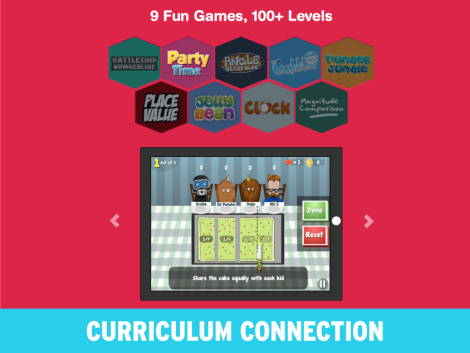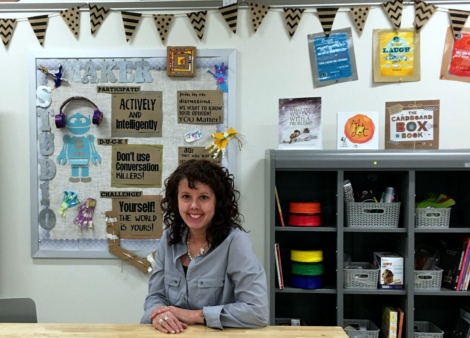
Avoiding the “Summer Slump” with Math Games
Posted by Andrew Gardner on
Today’s guest blogger, Derek Lomas, shares research about the dreaded summer slump and ways to support students from losing progress over the summer. Derek is a learning scientist at Carnegie Mellon who works with a team that has contributed several of the math games on GameUp. Derek’s team has just released a free app, Math Planet, to support summer time math learning. Derek’s design team has been strongly influenced by scientific research on Summer Learning Loss, so we invited him to share some insights!
Six Important Facts about Summer Learning Loss
“Summer Learning Loss” (sometimes called Summer Slide, Summer Slump, or Summer Setback) is the well-researched effect of summer break on learning progress. I’ve summarized the strongest findings from two meta-analyses of educational research on Summer Learning Loss (download here and here).
Students forget about one whole month of school during a 3-month summer break (Cooper, 1996). A month doesn’t seem so bad, but by 8th grade, that’s nearly a full school year — forgotten!
Math suffers more than reading over the summer, with an average loss of 1.9 months of instruction (Cooper, 1996; p 255). Why? Basically, it is a lot easier to find some “fun summer reading” than some “fun summer math”. That’s what motivated us to make Math Planet — we think math games could make a big difference!
Math computational skills suffer the most, with a loss of 2.6 months over the summer (Cooper, 1996; p 255). This is because math facts and procedural skills are forgotten faster than conceptual skills. (Of course, both types of skills are very important)
Children with learning differences are especially affected by summer learning loss (RAND, 2012)
Math is forgotten equally rapidly by students of high and low socio-economic status (SES). In contrast, reading recognition actually improved by 2.3 months for middle-income students but decreased by 1.5 months for low-income students (Cooper, 1996; p 258).
Multiple types of summer learning programs, including mandatory, voluntary and at-home programs, have proven effective (RAND, 2012)
Engaging Kids in Math
Engaging kids in math over the summer has significant potential for reducing summer learning loss. But the key word here is “engaging.” Only the most motivated parent will engage their child in math worksheets…
Designing a New Summer App: Math Planet
Motivated by this problem, my team and I wanted to create a program that could engage kids in math all summer long. Called Math Planet, it’s a game-based curriculum for grades 1 through middle school. We designed each Math Planet curriculum pathway to support grade-appropriate common core standards and their precursors. Additionally, we incorporated many of the recommendations from the practice guides of the Institute for Education Sciences.
Most importantly, we designed Math Planet to support data-driven continuous improvement. This means that we track average learning outcomes (anonymously, of course — we don’t collect any identifiable information) to find areas of the app where students are struggling. Based on this data, we can then fix problem areas with better supports and scaffolding. Using both human-centered and machine learning optimization techniques, the more students who play, the more we can measurably improve student learning and engagement. As you can tell, I’m a big believer in data-driven continuous improvement and I love chatting about it — so feel free to comment and I’ll check in!
Questions for Teachers?
Teachers — what are your experiences with Summer Learning Loss? How do you plan to get kids caught up in the Fall? Do you use any programs to help kids stay engaged with math over the summer? What works for you?
Bio:
My name is Derek Lomas and I’m a learning scientist and designer at Carnegie Mellon University’s Human Computer Interaction Institute. My PhD is supported by the Program for Interdisciplinary Education Research (a fellowship from the Institute for Education Science). I also design and make educational games for high-impact learning — you can follow our games @PlayPower and me @LomasDerek.














